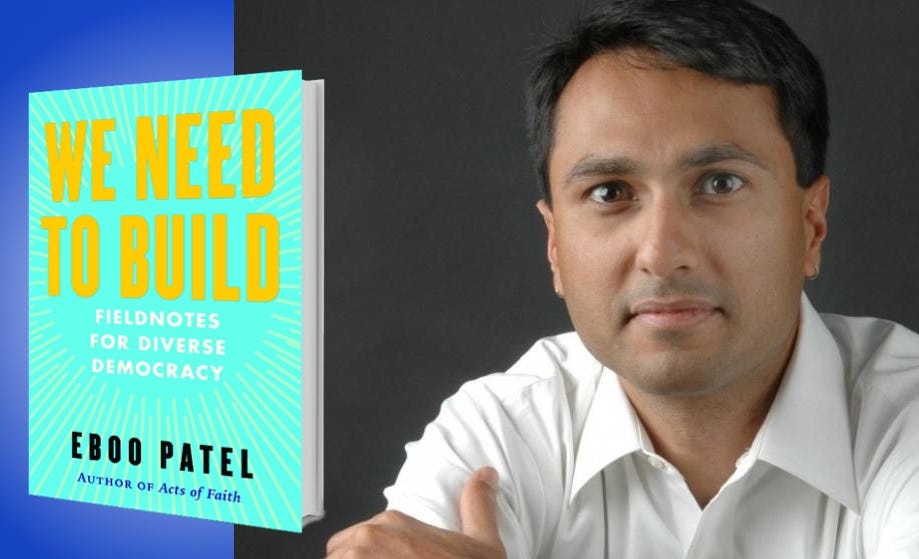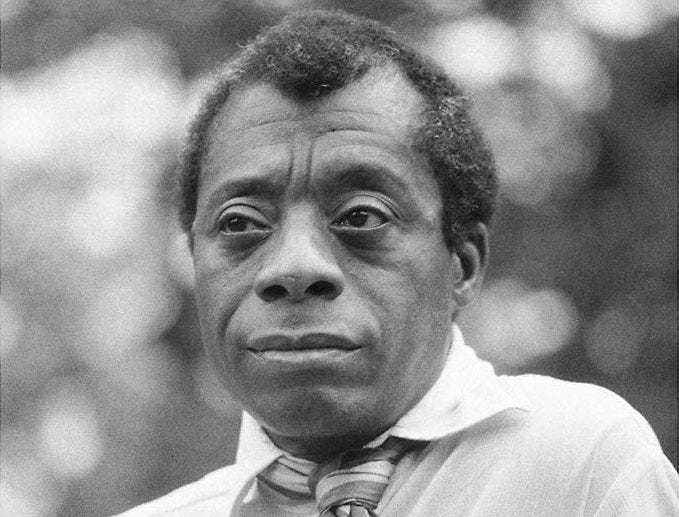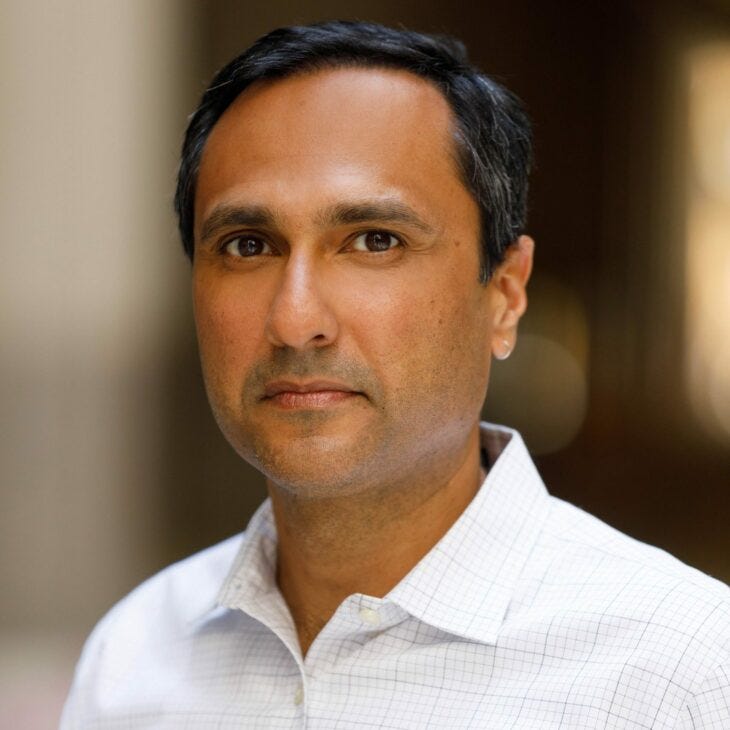Social justice
WANT TO BUILD A MORE JUST SOCIETY?
Be guided by a vision for, not an anger against
Eboo Patel
An excerpt from We Need to Build: Field Notes for Diverse Democracy:
On a summer night in 1961, James Baldwin presented himself on the doorstep of the Honorable Elijah Muhammad. He had come for dinner because he heard in the language of Elijah Muhammad someone willing, at that time, to do the rarest of things: talk plainly in public about the pain and fury that Black people had suffered at the hands of white racism. The story of this dinner and Baldwin’s reflections on it, make up the bulk of his much-celebrated 1963 book The Fire Next Time.
Over the course of the evening, Baldwin found himself growing increasingly uncomfortable, even alarmed. The men and women were separated at the Nation of Islam, and the women were very clearly subservient. Everything Elijah Muhammad said was met with immediate and total affirmation from the group, in a rhythmic formulaic manner befitting a cult, not a community. Did they really think they could create an entirely separate Black nation and economy? If Elijah Muhammad said so, they did. Did Elijah Muhammad really think that white people could only ever be evil and that their main purpose was to find ever more creative ways to poison Black people? Baldwin better not share that he was on his way to the North Side of the city to have a drink with a white friend later that night.
Ultimately, Baldwin comes to the realization that while he understands Elijah Muhammad’s anger, he does not want to live in Elijah Muhammad’s world. “As I sat at Elijah’s table and watched the baby, the women, and the men, and we talked about God’s—or Allah’s—vengeance, I wondered, when that vengeance is achieved, What will happen to all that beauty then?”
He is referring to the Black people he grew up with in Harlem, and coming to the realization that, although Elijah’s anger is meant to save them, it won’t because it can’t. Anger doesn’t construct, it only destroys. Burns everything. Including those who breathe the fire—however justified and righteous—in the first place.
Let me use an illustration from Game of Thrones. In the early seasons of the series, we watch Daenerys Targaryen grow into her leadership and set her sights on the Iron Throne. She is righteous and idealistic, dedicating herself to the cause of oppressed people across the Seven Kingdoms. She travels to city after city with her dragons at her side, inspiring crowds with her speeches about equality and freedom, and directing her dragons to burn down the structures of enslavement.
Along the way, she learns that if you burn a structure down, people expect you to build something better in its place. Dragon fire proves to be a powerful weapon against oppression, but a hazard to good governance. Dragons cannot tell the difference between a brutal slave master and an innocent farmer. They just scorch everything in sight.
Season after season, we see Daenerys struggle with governing, and become more and more wedded to her dragons. She increasingly sees the world through their eyes. Watching her become angrier and angrier, I couldn’t help but think about a twist on an old adage, “If all you have is the anger of dragon fire, the whole world looks like a structure to burn.”
The final episodes of the series bring this theme to its logical conclusion. When the bells ring at King’s Landing, announcing the surrender of the city, no look of relief or celebration crosses the face of Daenerys Targaryen. She does not think to herself that the day she has waited for these long and brutal years has finally arrived, and her golden reign of peace and justice might begin. She has had too much experience burning things down and too little building them up. She rides her dragon high into the sky, her whole body a clenched fist of oppositional fury even at the hour of her victory, and rains down a raging fire, murdering the very people she had promised to save.
And she is not finished yet. In her first formal speech as Queen of the Seven Kingdoms, she promises more death, more destruction, more burning down of structures. This madness, even though she now sits upon the Iron Throne and has all the power she needs to build a better world.
The Daenerys Targaryen spirit lives in history as much as it does in fiction. The French Revolution began with the cry of liberty, equality, and fraternity and then gave way to five years of the Reign of Terror and, finally, a new dictator, Napoleon. Such has been the fate of more than one movement that began with high ideals. Too many activists, in their zeal to overthrow the Shah, wound up installing the Ayatollah. Some of them became the Ayatollah.
So what is to be done with righteous anger? Baldwin transforms his into working for the possibility of America.
“I am not a ward of America,” he writes in chapter 11 of The Fire Next Time, “I am one of the first Americans to arrive on these shores.” That gives him both greater privileges, and also, in his estimation, greater responsibilities. He writes, “Everything now, we must assume, is in our hands; we have no right to assume otherwise.” And what should we do with that responsibility? Here is Baldwin’s answer: come together across racial lines to “achieve our country” and, by doing this, “change the history of the world.”
Eboo Patel is a civic leader who believes that religious diversity is an essential and inspiring dimension of American democracy. Named “one of America’s best leaders” by U.S. News and World Report, Eboo is Founder and President of Interfaith America, the leading interfaith organization in the United States. Under his leadership, Interfaith America has worked with governments, universities, private companies, and civic organizations to make faith a bridge of cooperation rather than a barrier of division.
Eboo served on President Obama’s Inaugural Faith Council, has given hundreds of keynote addresses, and has written five books, including We Need to Build: Field Notes for Diverse Democracy. He is an Ashoka Fellow and holds a doctorate in the sociology of religion from Oxford University, where he studied on a Rhodes scholarship. Eboo lives in Chicago with his wife, Shehnaz, and their two sons. Follow him in Twitter and LinkedIn.







Thanks for your insight, this makes it more interesting to read about and understand!
What do you do with the reality that before he died, James Baldwin was calling on “non-participation” (i.e. complete withdrawal from the American system) as the form of protest that would ultimately be necessary? (Listen to his last speech at the national press club, in DC)